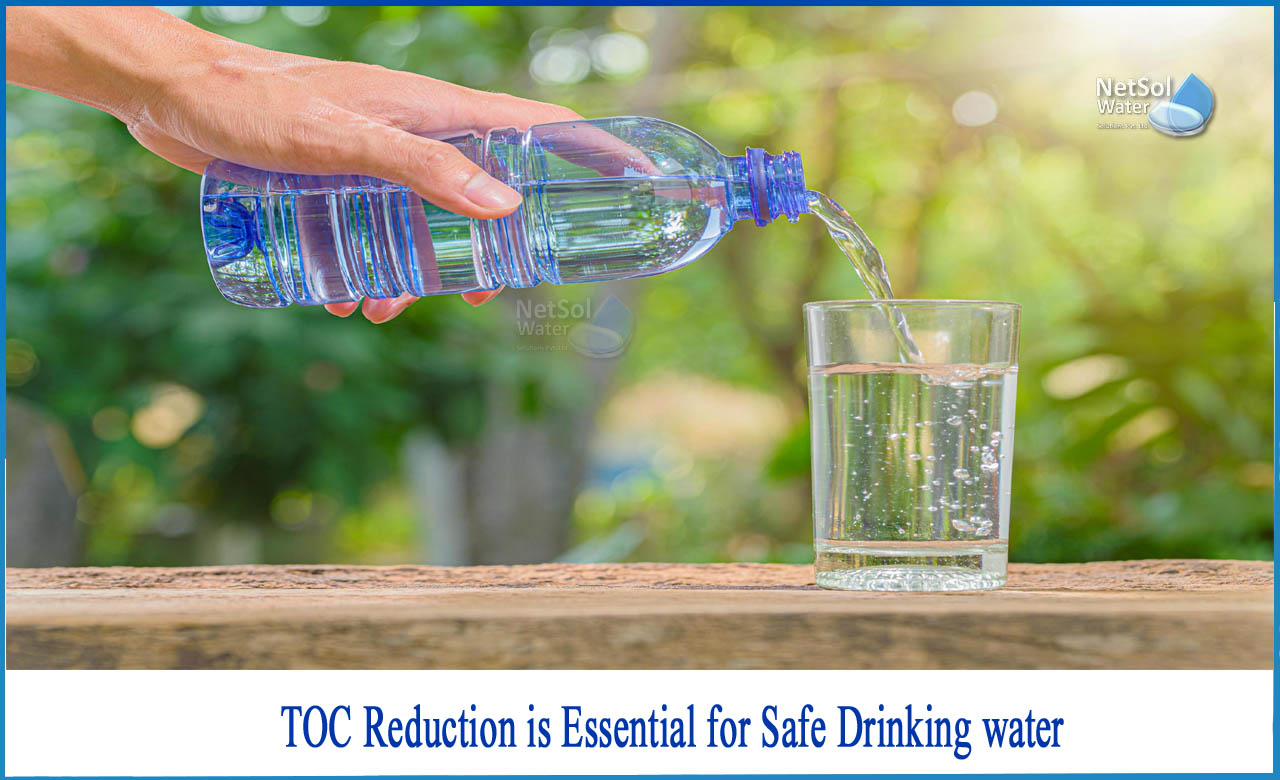What doesTOC mean?
Total organic carbon (TOC) in water is a metric that reflects the number of pollutants or organic molecules present. Measuring TOC in water allows businesses to determine whether or not the water is suitable for their requirements. The number of compounds present will be determined by TOC, not by which compounds are present.
Colloids, compounds, macroscopic particles, and dissolved macromolecules are among the hundreds of components. It's also dangerous if it's not controlled. Water treatment managers continue to struggle with total organic carbon minimization or eradication, despite the fact that it is critical for safe drinking water. The Government is so concerned about TOCs that it is enforcing penalties on water treatment plants that do not eliminate them.
What exactly is the big deal?
Carbon elements are supplied into the water from the water source and are found in all water, no matter how pure it is. During purification and manufacture, it is also delivered from materials and systems.
Another source is workers who are directly involved in the processes (From natural or altered living system products, as well as man-made and synthetic substances).
When TOCs are mixed with chlorine to disinfect water, they generate halo acetic acid, also known as total Trihalomethanes (TTM). As a result, it becomes a disinfection by-product (DBP), posing environmental and health hazards. The following are some of the health risks:
- Bladder cancer
- Reproductive issues
- Complications during pregnancy
The DBPs in treated water are proportional to the TOC level in untreated water.
We've learned in the last decade that certain microbial diseases, such as Cryptosporidium, can cause illness and are very resistant to typical disinfection methods. Because of the dangers, the Government enacted new guidelines (mandated by Congress) requiring DBP reductions in treated water. Stage 1 was implemented in 1996 to assist balance the risks associated with these pathogens and DBPs. The newest rule, Stage 2, builds on Stage 1 in order to prevent bladder cancer.
How to reduce TOC in Drinking water?
TOC reduction may appear simple, but it differs from place to place and is influenced by factors like human activity, plant life, and climate. The appropriate formula necessitates a careful combination of bespoke testing and chemistry.
Because manufactured drinking water is frequently disseminated in a few hours, the TOC value of drinking water is critical. As a result, fast screening of the allowable total organic carbon load must be precise and completed rapidly. Public water systems limit DBP generation and exposure by lowering TOC concentrations.
TOC Reduction methods
1: Membrane filtration with Reverse Osmosis
There are two types of membranes used in water treatment: low-pressure and high-pressure membranes. High-pressure systems include reverse osmosis (RO) and Nanofiltration (NF), whereas low-pressure systems include microfiltration (MF) and ultrafiltration (UF). The differences are significant. Netsol Water Solutions is a large manufacturer of RO plants.
2: ION Exchange
The use of styrene and acrylic strong base anion resins to remove TOC from water is also a viable option. Huge organic molecules are captured by the large pores of these resins. After removing the organic components from the resin with a brine solution, the resin can be reused year after year.
3: UV
UV radiation promotes the creation of free radicals, which leads to the oxidation of organics into water and carbon dioxide. In water treatment, UV radiation with a wavelength of 254 nanometres (nm) is often utilised. By adding per-sulfate compounds to the oxidation process, the power of the oxidation process can be increased.
4: Advanced Oxidation
Advanced oxidation necessitates hydroxyl radicals in proportion to the pollutants being removed, which can drive up the cost of chemical reagents. The hydroxyl radicals, on the other hand, are among the most powerful antioxidants available. They're made by injecting hydrogen peroxide, ozone, or oxygen into the water treatment process exactly. Rather than simply transporting organic chemicals to another phase, the method is capable of destroying them.
How can Netsol Water help?
Netsol Water is a significant water and wastewater treatment firm in India, offering WTP, WWTP, STP, and ETP, Industrial RO, Commercial RO, Water Softeners manufacture, among other services. The company creates equipment and is committed to providing practical solutions that help businesses flourish. We arecommitted to providing our valued customers with hands-on service, expert counselling, and training.
Netsol Water is Greater Noida-based leading water & wastewater treatment plant manufacturer. We are industry's most demanding company based on client review and work quality. We are known as best commercial RO plant manufacturers, industrial RO plant manufacturer, sewage treatment plant manufacturer, Water Softener Plant Manufacturers and effluent treatment plant manufacturers. Apart from this 24x7 customer support is our USP. Call on +91-9650608473, or write us at enquiry@netsolwater.com for any support, inquiry or product-purchase related query.



